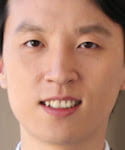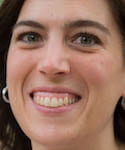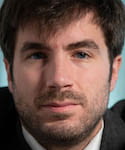Multidisciplinary awards support high-risk, high-reward initiatives
Rice University’s Creative Ventures Funds Programhas awarded grants to four Rice researchers and their colleagues through the InterDisciplinary Excellence Awards (IDEA), which support new research or academic partnerships by at least three faculty members across two schools.
This year’s winners are electrical and computer engineer Taiyun Chi, psychological scientist Danielle King, sociologist Elizabeth Roberto and astrophysicist Christopher Tunnell.
The awards of up to $75,000 over two years are for high-risk, high-reward initiatives that lead to proposals to generate new centers or programming with multiple principal investigators. The proposals are reviewed by Yousif Shamoo, vice provost of research, with input from the University Committee on Research.
The program supports the university’s goal to invest in faculty to achieve preeminence, as well as to elevate research achievement and reputation, both goals of Rice’s Vision for the Second Century, Second Decade.

Taiyun Chi
Chi, an assistant professor of electrical and computer engineering, will work on the development of a closed-loop smart wound dressing with embedded real-time monitoring to promote optimal healing. His co-investigators are Gang Bao, the Foyt Family Professor of Bioengineering with a joint appointment in chemistry, and Richard Baraniuk, the Victor E. Cameron Professor of Electrical and Computer Engineering.

Danielle King
King, an assistant professor of psychological sciences, will study techniques to foster positive emotions and psychological and physical resilience, especially for job seekers dealing with unforeseen challenges and stressors. Her co-investigators are Akane Sano, an assistant professor of electrical and computer engineering, and Bryan Denny, an assistant professor of psychological sciences.

Elizabeth Roberto
Roberto, an assistant professor of sociology, plans to design methods to study road networks, residential segregation and urban change. She will draw upon recent developments in graph theory and network science, sociology and the spatial humanities to better understand the relationship between segregation, the built environment and historical patterns of urban change. Her co-investigators are Santiago Segarra, an assistant professor of electrical and computer engineering, James Elliott, a professor of sociology, and Farès el-Dahdah, director of the Humanities Research Center and a professor of humanities.

Christopher Tunnell
Tunnell, an assistant professor of physics and astronomy and of computer science, will study whether unsupervised machine learning using neural maps can help scientists search for dark matter. The goal is to perform the first academic study of how potential dark matter signals are measured in direct-detection experiments and whether a machine can learn to recognize them. His co-investigators are Erzsébet Merényi, a research professor of statistics, and Petr Chaguine, an assistant research professor of physics and astronomy.

